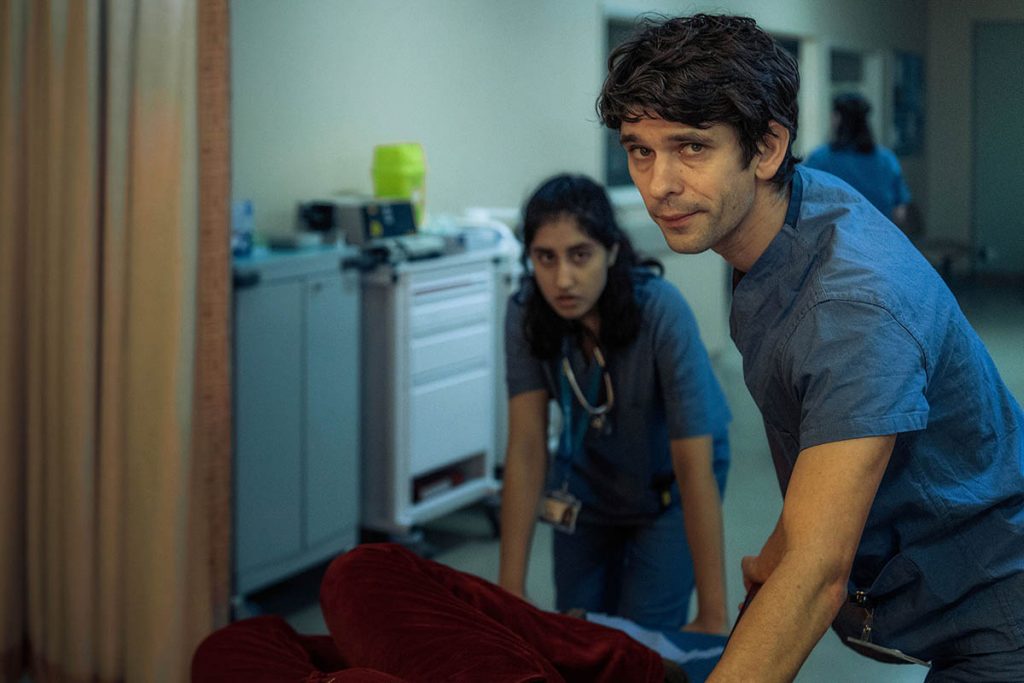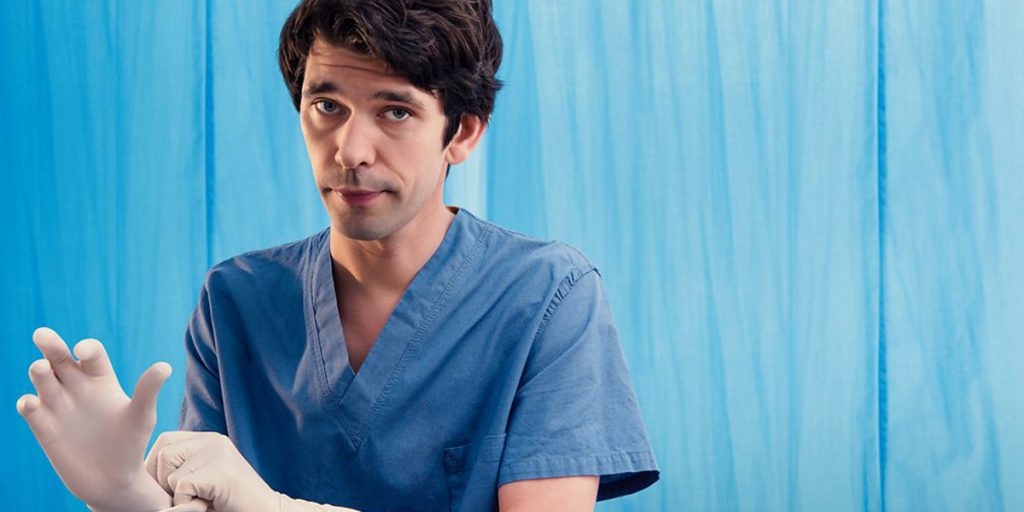This Is Going To Hurt is hilarious, heart-breaking and, above all, important. We see the healthcare system as it really is: messy, remarkable and in desperate need of reform.
When I sat down to watch This Is Going To Hurt, I was going in blind. I hadn’t read the book but assumed it was a doctor-worshiping God complex in narrative form that was reserved exclusively for the over-enthusiastic medical student. I had expected the series would be much the same. I expected to be shown a doctor saving lives, left right and centre with an over-inflated ego and smug expression. I expected nurses, midwives and medical students to get little to no airtime and their efforts to go unnoticed. I had expected a lot of things, but what I hadn’t anticipated was to be proven entirely wrong.
Through the eyes of junior doctor Adam Kay (Ben Whishaw) and other medical staff, This Is Going To Hurt shows life (and death) on the labour ward as it really is. It balances important discussions around grief, trauma, and mental health with well-timed humour and forced me to re-examine some of my preconceptions surrounding the medical profession. If you expect one thing from this series, expect it to stay with you long after the final credits.
You know the saying, ‘you’ve got to laugh, or you’ll cry’? Well, this show really takes it to heart. With each episode dancing with themes of death, depression and emotional exhaustion, I didn’t expect to laugh as much as I did. Adam Kay’s life as a junior doctor on a labour ward is characterised by 90-hour work weeks, staff shortages, professional hierarchy and the odd life or death decision (and that’s just his day job), and yet he carries (or clings to) a quick wit and sense of humour that alleviates the tension just enough to remind us that these doctors are people too.

Through clever production and camera work, the show really asks its audience to consider the humanity of medical staff. Surgeons, consultants, and doctors are brought down from their pedestals, where they sit as God-like figures in societal consciousness, and are shown as real people: people with relationship problems, irritating parents and cars that won’t start. Throughout the series, we experience Adam’s stream of consciousness with internalised thoughts addressed directly to the camera, reminding us of the aim of this series. By drawing the audience into the action, we are asked to bear witness to a healthcare system in turmoil, a system that plays host to an epidemic of healthcare professionals coping with their own internal battles while fighting to save patient’s lives. This series is an appeal to pay attention to the silent suffering of our societal superheroes.
There are two scenes in which the show seems to sum up its message. In the first, Shruti (Ambika Mod), a trainee doctor, tends to a patient in an over-crowded A&E. The patient’s father, unappreciative of the long waiting times, tells Shruti that, as a taxpayer, he ‘pays her wages,’ to which she brilliantly replies, ‘can I have a raise, then?’. Here, we see how blind we, the general public, really are. We expect doctors to be superhuman, to treat every ill in two seconds flat and do it with a smile on their face; we expect them to leave their humanity at the door because ‘they signed up for this,’ and to act with both human compassion and inhuman efficiency.
The show doesn’t tell us that we shouldn’t expect the best from healthcare staff, but that we should try to appreciate that their job, whether they signed up for it or not, is really really hard. In the second scene, Adam addresses the GMC (General Medical Register) panel and reminds them of a terrifying statistic. In the UK, a doctor takes their own life every three weeks, this is a statistic that applies solely to doctors, when accounting for all medical professionals the number is even more dire. This Is Going To Hurt shows us how we, as a society, expect doctors to save us without thought to how they will save themselves.
Okay so there’s a major spoiler coming up, if you haven’t seen it go away, watch it, and come back, (or just skip to the next paragraph) you have been warned. Usually, I’d try to avoid this kind of spoiler, but to talk about how we need to acknowledge the suffering of medical professionals and not address this seems entirely wrong. In the penultimate episode, Shruti kills herself. I didn’t see it coming and that is the problem. The show doesn’t hide Shruti’s suffering: in fact, it takes centre stage. She barely sleeps, she isolates herself from loved ones, she doesn’t eat properly: all the signs are there, signs that we would all brush off as coming with the territory of a stressful job that ‘she signed up for’. We expect medical staff to live constantly on the edge of complete mental decline and then are surprised when they fall off. This is a systematic failing in societal infrastructure and social attitudes, and it has to be addressed.
Something I find really interesting is how divisive this show has been. While some have applauded its brutally honest portrayal of life on a labour ward, others have condemned its graphic depictions of childbirth as fear-mongering. To slate this show, calling it too graphic, is to entirely miss the point. Yes, I admit, were I about to give birth, this series would have scared the living day lights out of me, but all it does is show a maternity ward as it really is, through its dizzying highs and gut-wrenching lows. To deliver an air-brushed version would do a disservice to the healthcare staff who have to witness the messy reality day in and day out, this show is built on a resolve of brutal honesty, and it shows an unfailing commitment to that.
The final scene of the series is subtly and beautifully made. It shows Adam, swimming in a lake with his ex-fiancé Harry (Rory Fleck Byrne). Adam tells Harry of his plans to leave medicine, the profession that ruined their relationship and Adam’s mental wellbeing. ‘Look what it’s done to me,’ he says, and Harry replies that he doesn’t believe he will walk away from life as a doctor. We see a brief montage of Adam delivering babies to overjoyed parents, teaching younger doctors, and performing life-saving treatment. Adam agrees that he also doesn’t think he can leave it all behind. The two embrace as they tread water. The final shot is a painfully human image of a doctor clinging to a loved one fighting to keep his head above water, sadly symbolic of an entire demographic that is constantly swimming against the tide.
This is Going to Hurt is now available to watch on the BBC iPlayer in the United Kingdom and on AMC+ in the United States.

